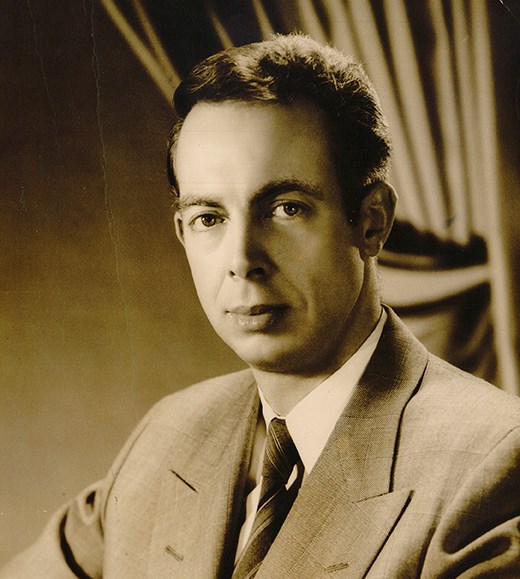The adage "Music is enough for a lifetime - but a lifetime is not enough for music," which is attributed to Russian composer Sergei Rachmaninoff, could perfectly describe the honour that is being bestowed on former Squamish resident Ross Alden.
A teacher, academic, composer, a concert pianist, Alden will soon be honoured posthumously on the 100th anniversary of his birth.
The Ross Alden Celebration by the Canadian Music Centre will take place on Monday, Feb. 10.
The Vetta Strings will be performing his music including two piano quartets composed in 1989 and 1992.
Two new commissions will be premiered in honour of his memory: "Nocturnal Bells" for solo piano by Evgeny Shcherbakov performed by the composer and "Of Kindred Minds" for piano quartet and oboe d'amore by Janet Danielson.
The Canadian Music Centre is cataloguing and publishing his previously unpublished compositions.
Alden, who died in 2008, had told his sister to ensure his daughter Elizabeth Carmack, who is behind the renowned Cambridge Music Conference, was given his unpublished works, "because she would know what to do with them."
And she did.
Once the application was submitted, a multi-phase process to have him recognized followed.
There was a jury process in Vancouver, which Alden passed followed by a national adjudication, which he also passed.
"I am very grateful to the Canadian Music Centre for their recognition. At long last, my father has received the acknowledgment he deserves for the high quality of music that he composed,” Carmack said.
His time in Squamish
Alden bought a house and moved to Squamish in 1993.
When he was previously living in Vancouver, his neighbour worked nights and didn't want him playing the piano at all hours. Moving to Squamish, he was free to play.
"He had a nice connection with the library... He lived across from the Sikh Temple and they were very kind and welcoming," Carmack said.
Ross Alden's first performances in Squamish were at the home of his friends, Joanna and Rainer Schwarz in the Garibaldi Heights, where he performed three concerts in the late 1990s.
Also later in October of 1997, he performed a week of recitals for a conference on biodynamic farming at C-Dar Lodge in Paradise Valley.
From November 1998 to 2005 all of his recitals were in his Squamish home.
Joanna Schwarz told The Chief she had heard Alden perform at a house concert in Vancouver and invited him to Squamish.
"Even though his hands were starting to give him trouble — he always warmed up by squeezing a soft rubber ball to exercise his fingers — he was determined to make his way through all of Bach's 48 Preludes and Fugues," she recalled.
"It was a privilege to hear him perform three or four sets each time he came." She said a memory that does stand out about him is that he insisted that anyone invited must be prepared to listen carefully and quietly. "That was not difficult, he was such a master of the instrument."
Alden left Squamish in 2007 and moved to Delta to live closer to his younger sister Marilyn.
His life and times
Music was a refuge for Alden, growing up on a farm in Alberta, in a home that wasn't always accepting of him.
"One of his earliest happiest memories as a child was learning to read music from his mother's hymnal when he accompanied her to church," Carmack said.
A piano came into the house in lieu of a debt owed his father.
He left home at 16 and earned a living playing the piano.
From a young age, he was aware he was gay at a time when it was particularly dangerous to be so.
For many years, homosexuality was a crime in Canada.
Changes to the criminal code in 1948 and 1961, added the categories of "criminal sexual psychopath" and "dangerous sexual offender" to refer to homosexuality.
Although the decriminalization of homosexuality occurred in 1969, the 1977 Canadian Human Rights Act only identified the need to protect against prejudice on grounds of sexual orientation in 1996.
It wasn't until 2005 that Canada legalized same-sex marriage.
Alden was open with Carmack's mother, whom he met while he was teaching in England, and the two married, clear of each other's role. They had two children.
"Although initially rejected for openly admitting he was gay, once married he was granted access to this secret society [as a composer for the Gurdjieff Movements ] with the help of his wife's support,” Carmack said, adding she grew up knowing her father was gay.
"With same sex marital legislation in 2005 society began to understand that gay people simply wanted to be treated the same way."
Alden was able to find a nucleus of intellectual gay men in Vancouver for support.
"They celebrated his music and his performances," Carmack said. "He got connected... but what he didn't, of course, have was the on-going long-term [homosexual] relationship."
The Ross Alden Celebration by the Canadian Music Centre will take place on Monday, Feb. 10. at 7 p.m. at the Centre on Davie Street in Vancouver.
Find out more about the event at the Canadian Music Centre Facebook Events page.



